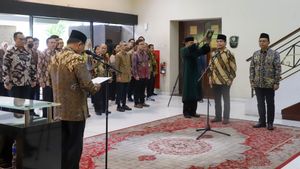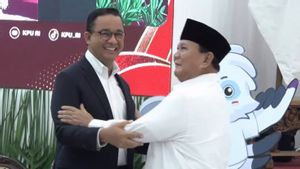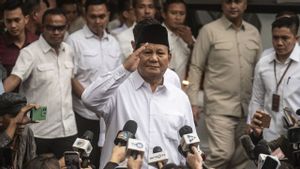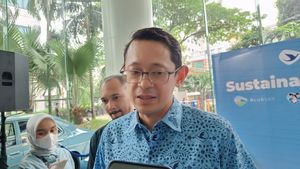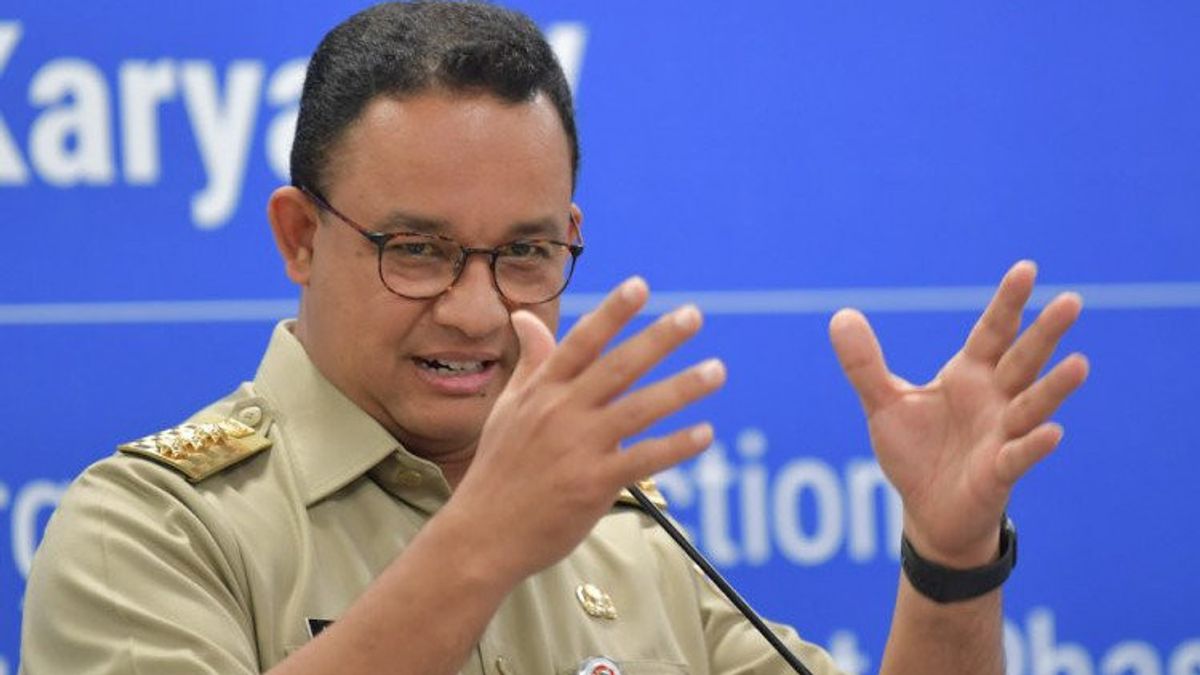
JAKARTA - The scheduling of regional head elections (Pilkada) subsequently became a polemic when the Indonesian Parliament proposed the Election Bill (RUU) that revised the previous electoral rules.
The House of Representatives, in their proposed Election Bill which they drafted as of November 26, wants the next regional elections to be normalized in 2022 (for the continuation of the 2017 elections) and in 2023 (for the continuation of the one in 2018).
However, the government still wants to carry out the rules in Law Number 1 of 2015 concerning the regional elections, which stipulates that elections are held simultaneously in 2024. Then, the attitudes of the number of parties regarding the schedule of the elections were divided after the government expressed the desire for the elections to be held in 2024.
Initially, Indonesian Democratic Party (PDIP) opened their voice, wanting the 2024 regional elections to be carried out, according to the government's wishes. Followed by PKB party, Gerindra party, and NasDem party. Then, a number of other parties such as PAN and PPP rejected the overall discussion of the Election Bill, which includes the normalization of the 2022 and 2023 regional elections.
Meanwhile, PKS, Demokrat, and Golkar continue to push for the Election Bill to be discussed, so that the elections can be normalized. Until now, there have been no further decisions regarding the draft election bill.
The former Director-General of Regional Autonomy (Otda) of the Ministry of Home Affairs responded to this polemic during the leadership of President Susilo Bambang Yudhoyono, Djohermansyah Djohan.
Djohan proposed that the central government extend the term of office of regional heads which will expire in 2022 and 2023 if the regional elections are held simultaneously in 2024.
"We could use a new format called the extension of the term of office. We can appoint the Acting Regional Head who is currently in office, or extend the term of office to a total of 6 to 7 years until 2024. For example, Mr. Anies Baswedan, we could extend his position in DKI Jakarta for 2 more years", said Djohan, some time ago.
Election organizers also opened their votes. The General Election Commission (KPU) commissioner Hasyim Asyari proposed that the next regional election be held simultaneously in 2026.
Hasyim said, if the regional elections are held simultaneously in 2026, then the term of office for regional heads in all regions should be extended until the regional heads are inaugurated as a result of simultaneous regional elections in 2026.
"The design of simultaneous regional elections in 2026 is a form of a win-win solution, makes many parties happy and comfortable, with an extension of the term of office up to 2026, and there is no need to provide regional officials or acting heads of regions for a long duration of time", said Hasyim.
In addition to simultaneous regional elections, Hasyim also proposed legislative elections at the regional level such as the provincial and district/city House of Representatives to also be held in 2026. Hasyim said the simultaneous regional elections had not been able to organize regional government institutions simultaneously. This is because the terms of office of regional heads are still varied and the terms of which are different from those of the House of Representatives members.
The extension of regional heads' tenure suppresses party egoism
The Board of Supervisors of Association For Elections and Democracy (Perludem) Titi Anggraini, said that the proposed extension of the term of office of regional heads which expires in 2022, 2023, and 2025 is an effort to organize coherent election scheduling with a party system and the effectiveness of the government system.
Therefore, political party elites in parliament and government must understand that this effort can suppress the selfish side of each other's political attitudes.
"In a political party representation system, good faith or the willingness of each group to seek common ground and the willingness to hold back group interests is needed in order to create a better and better quality electoral design", Titi told VOI, Saturday, February 6.
Therefore, the design of simultaneous elections with an extension of the term of office is a form of compromise that could be an option.
"The party will also be more lively with the scheduling of this model election twice. Instead of piling up and buying up elections and regional elections in the same year", she explained.
The English, Chinese, Japanese, Arabic, and French versions are automatically generated by the AI. So there may still be inaccuracies in translating, please always see Indonesian as our main language. (system supported by DigitalSiber.id)


